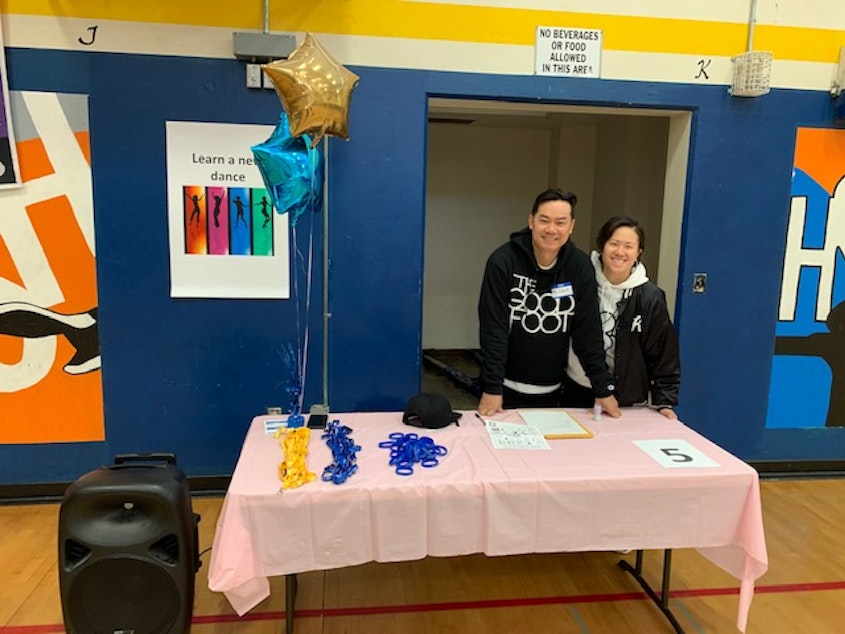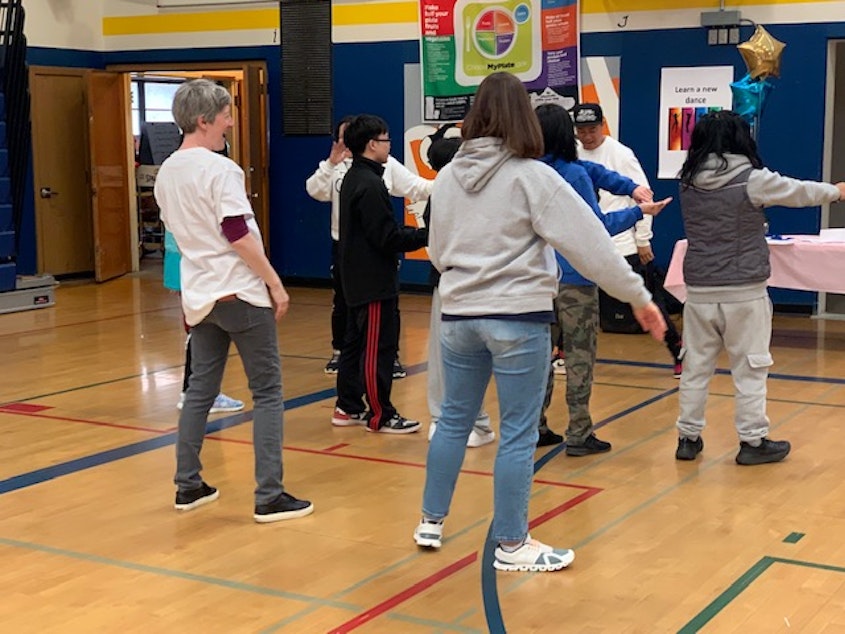A group of Seattle school PTAs is redistributing wealth to help students

Teacher JC Fretz likes to ask his fourth graders at Seattle’s Emerson Elementary about their thoughts on PTA funds. That might seem like a rather boring question for 9-year-olds, but Fretz says his students have opinions. In fact, they have one particular priority — snacks.
Students in Fretz’s class don’t always have enough food to make it through the day.
"I don't have enough to pass out to everyone," Fretz said. "So sometimes it's just trying to decide: Who seems the most hungry today? Who missed breakfast? Who [is] having a really hard time?"
The simple budgeting exercise in Fretz’s class highlights a considerable inequity between schools in Seattle, and the state.
This story first appeared as a segment on KUOW's Seattle Now. Listen to the full segment here, or click the audio above.

Different schools have more or less public funding available to them. Typically, wealthier areas have higher property taxes to rely on. Others in lower-income communities don't have the same kinds of resources.
Regardless, most schools don't have enough money to cover all the costs of a well-rounded education. This is where Parent Teacher Associations enter the mix. They're volunteer groups — of parents, teachers, and sometimes community members — who raise money to supplement school funding.
Sponsored
Again, PTAs in more well-off communities have greater fundraising power, but one Seattle group has found a way to stretch its dollars to make a bigger impact. The group is called SESSFA: the Southeast Seattle Schools Fundraising Alliance. It flips the script on the normal PTA approach.
"Traditional PTAs are really focused on the school they are raising money for," SESSFA organizer Alaron Lewis told Seattle Now. "So you may have one school that is funding multiple teachers off of their PTSA, and the neighboring school doesn't have enough money for a field trip."
Lewis is the PTA president at her daughter's school, Kimball Elementary on Beacon Hill. They've always had a strong PTA. But some neighboring schools in Seattle's District 7 had no PTA — and thus no supplemental funding — until SESSFA started in 2020.
The group holds an annual fundraiser in the form of a Move-A-Thon. The proceeds are split between the 17 participating middle and elementary schools, stretching from Seattle's Beacon Hill to Rainer Beach.
Sponsored
Half of the money is split up equally between the schools. The rest is divvyed out based on equity. That means the schools will get more funding if they have more students who are unhoused, English language learners, and/or BIPOC (Black, Indigenous and people of color.)
"This was an opportunity for us to all get together and raise money collectively, and then distribute it where it really needs to go. Which is to everyone," Lewis said, not just students in wealthy neighborhoods. "To the best of my knowledge, this is the only model that works this way across all of the United States."
It's so unusual, SESSFA caught the attention of the Smithsonian. The museum now has artifacts from the program's first year in its collection.
In Fretz's class, SESSFA funding has helped pay for snacks. Fretz says without it, he'd be paying out of his own pocket to keep his students fed.
Sponsored
It also helped the class refresh its book collection.
"When I first arrived, my classroom was filled with books that just did not represent my students. Books that were very outdated," Fretz said. "With the funds, they've talked about wanting to have more graphic novels, more stories with adventures and characters that look like them. More stories about real issues going on in the world."
SESSFA Move-A-Thon bingo board.pdf
Fretz's students also got excited about making an impact through the fundraiser. The SESSFA Move-A-Thon works on a sponsorship system, where family and community members donates to a student based on their participation in a bingo board full of activities.
"So many students were involved in doing the different exercises on the Bingo Board and just wanting to participate in the Move-A-Thon, even if they didn't necessarily know someone who had money," Fretz said.
Sponsored
This dramatic new approach to PTA funding has been a success so far, Lewis said. The program is aiming to raise half a million dollars this year.
Beyond that, it has started conversations about how to make equity a reality in Seattle's school system.
"How do you take something that somebody has been really used to having — because of the privileges they have, because of some built in, generally racist ideas — and say, 'Well you should do this, even if it means you have to give up that privilege'?"
It's a difficult question to navigate, but Lewis says the PTAs throughout District 7 have tackled it head on, and become a stronger community through the process.
Sponsored
Fretz's class is feeling the impacts of that success, but he says this should only be the beginning.
"I think it is beyond time for all of Seattle to think about how we can more equitably distribute PTA funds," Fretz said. "Because you look at some of the PTA funds in North Seattle and other parts of our city, and they are able to fund things that we can't even dream to fund with our PTA budget."
"I hope this trend continues in a way that really starts to look more closely at the entire city and the funds that exist across all of our schools, and how those can be more equitably distributed. Because we do need more funds than we currently have now to support our students."
Hear the full episode on the Southeast Seattle Schools Fundraising Alliance by clicking the play button above, or by subscribing to Seattle Now in any podcast app.





